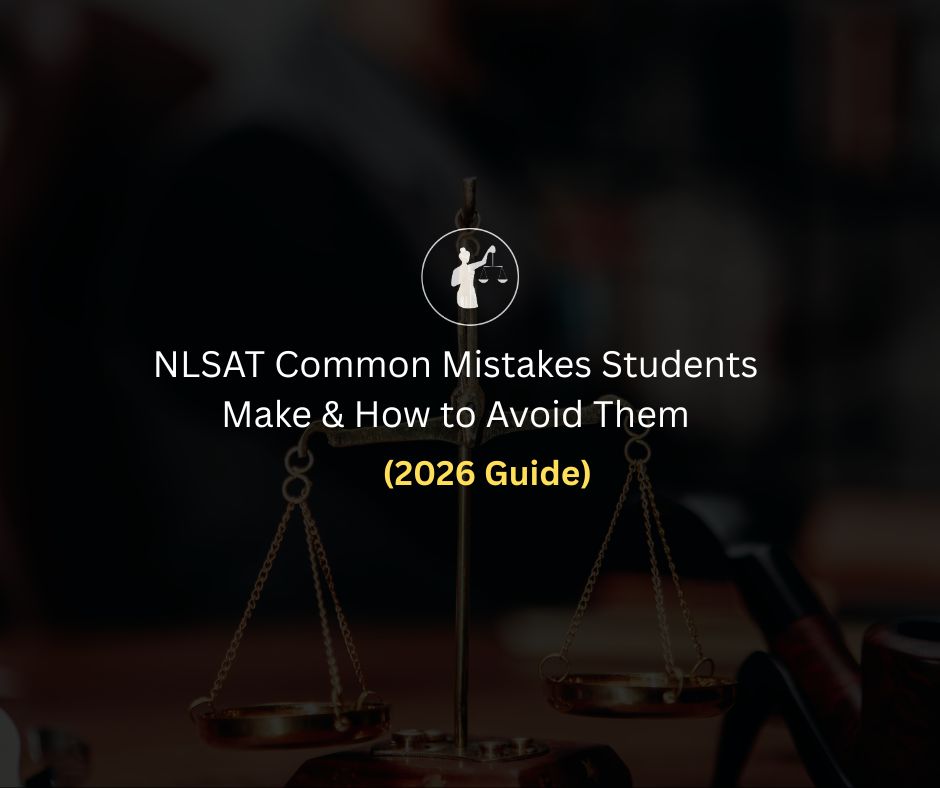
If you start your CLAT preparation without a clear plan, it can quickly become an exhausting cycle of endless materials and mock tests that don’t seem to move the needle. What really matters is knowing your strengths, your weak spots, and how you learn best so your preparation is strategic, realistic, and built to last.
This blog is your day-one companion: not to tell you which chapters to start with, but to guide you on how to approach your preparation strategically, realistically, and with a long-term mindset. Whether you’re just beginning or looking to course-correct after a few messy weeks, here’s how to set up your CLAT 2026 journey the right way.
Also Read: What is CLAT Exam? A Complete Guide for CLAT
Before setting your schedule or choosing a prep book, pause and look at the exam for what it actually is: a test of comprehension, analysis, prioritization, and pattern recognition.
CLAT is not a memory test. It doesn’t reward cramming or even completion. It rewards understanding under pressure. Most students get this too late.
What this means:
GK isn’t about current affairs listen it’s about identifying relevant news and retaining context.
RC and Legal aren’t about speed reading they demand calm, interpretive reasoning.
Quant and LR aren’t about formulas they test your comfort with logic flow.
Before you dive into materials, understand what CLAT is actually testing you on.
CLAT prep fails when it's managed like a school syllabus—"2 hours of English, then 2 hours of Quant"—without considering mental energy or purpose. Instead of boxing yourself into rigid daily hours, think weekly outcomes.
Structure your prep week around:
2 mocks per week
Review sessions with targeted analysis
1–2 long-form GK digest reads
Deep work slots
Flex slots
This isn’t about having a “perfect” routine. It’s about repeatable rhythm.
Also Read: How to Prepare for CLAT 2026 in 6 Months
Taking mocks every third day won’t help if you’re not processing them. A mock is only valuable when you:
Dissect errors by type:
Was it a comprehension miss? A rushed judgment? A misread?
Tag patterns
Are you always misjudging opinion-based RCs? Do you over-attempt in Legal?
Revise mock learnings weekly
Yes, literally make notes on your own mistakes.
A 90-mark scorer who understands their mock behavior will often outperform a 100-mark scorer who doesn’t.
Also Read: tay Consistent While Preparing for CLAT 2026
There’s an unspoken truth in CLAT prep: you won’t finish everything. And that’s okay. What matters is where you choose to go deep and what you strategically ignore.
Example:
Obsessing over outdated static GK when your current affairs base is shaky? Drop it.
Spending weeks mastering uncommon Quant topics when you can’t do simple DI confidently? Rethink it.
CLAT is not about doing more. It’s about doing less with extreme clarity.
Reading speed is overrated. Reading stamina isn’t.
CLAT passages aren’t tough, but they’re dense. Most students fall apart not in the first 30 minutes, but after they’ve read five passages in a row. That’s fatigue, not ability.
Build stamina by:
I read one long editorial every day slowly and reflect on its structure.
Practicing Legal and RC back-to-back to simulate fatigue.
Avoid passive reading, highlight, note, and question what you read.
It’s not glamorous, but this habit pays off more than any shortcut.
Waiting until you’ve “finished the syllabus” before giving mocks or analyzing papers is a trap. CLAT is a moving target—you learn the most by being in motion.
Start mocks when:
You know the basics of each section.
You can tolerate discomfort and uncertainty.
You’re okay with being wrong—as long as you learn why.
Waiting for full confidence before starting mocks is like trying to swim only after learning on land. Dive in.
One of the most common mistakes? Chasing more material.
What you really need:
A high-quality test series
A solid reading habit
Curated GK
1–2 sources max for each section
What you don’t need:
Five different RC books
PDFs from ten Telegram channels
Coaching notes from three centers
Stick to fewer, trusted sources. Revisit them deeply.
Don’t just track mock scores. Track why they changed.
Build a “Prep Reflection Sheet” that logs:
Mock score (+ break-up by section)
Type of mistakes (careless, conceptual, interpretive)
Time management observations
What you’ll change next mock
This builds self-awareness faster than any mentor can. CLAT doesn’t reward effort. It rewards adjustment.
No one talks about this enough: How you think on exam day matters more than what you know.
Train your exam mindset by:
Practicing decision-making under pressure (e.g., should I leave this passage now?)
Simulating mocks in unpredictable environments (bad lighting, background noise)
Training yourself to stay calm when stuck for 10 minutes
Knowledge is wasted if anxiety hijacks your thinking. Mental clarity is a skill.
You can’t sustain a year-long prep in a chaotic or overly competitive atmosphere.
Make sure:
You’re not constantly comparing scores with friends
Your prep environment supports deep work, not constant WhatsApp pings
You have someone mentor, senior, or peer—who helps you recalibrate when you're overwhelmed
Your inputs are only as good as the space you work in. Design it well.
A strong CLAT plan doesn’t begin with a timetable. It begins with self-awareness.
You need to know how you study best, what slows you down, and why certain patterns repeat. And that only happens when your prep is structured around reflection, not just repetition.
Because the truth is, it’s not the number of hours or materials that sets top-rankers apart. It’s how they course-correct when things stall. How quickly they identify what’s holding them back. And how intentionally they build their prep, not just around the syllabus, but around themselves.
If you're still figuring that part out, you're not behind. You're right where you should be. But now is the time to shift from scattered effort to smart systems.
Track your progress. Ask sharper questions. Adjust your methods, not just your hours.
And if you want support that respects that kind of prep, NLTI offers exactly that. No mass lectures. No one-size-fits-all plans. Just mentorship that adapts to your goals, weekly mock reviews that actually teach you something, and a prep environment that keeps you accountable without burning you out.
Because in an exam like CLAT, it’s not always the person who studies the most—it’s the one who studies the right way, from Day One.
Check Out the Course Here: CLAT Online Coaching: Best Mentorship for CLAT 2026
FAQs on CLAT Preperations
1. How early should I start preparing current affairs for CLAT 2026?
Ideally from January 2025 onwards. This gives you enough time to build context and recall, rather than just last-minute memorization.
2. Is it okay to prepare for CLAT without coaching?
Absolutely if you’re self-aware, disciplined, and have access to quality mocks, reading material, and mentorship. Platforms like NLTI offer a structure without traditional coaching.
3. How do I manage CLAT prep with school or boards?
Prioritize quality over quantity. Even 2–3 hours a day can be enough if used well. Focus on reading habit, sectional practice, and mock review—not on covering every resource.
4. What should I do if I feel burnt out mid-prep?
Take a structured break for a day or two. Reassess your pace, remove redundant tasks, and return with a more manageable schedule.
5. When should I start attempting full-length mocks seriously?
Once you're comfortable with the basics of each section, start with partial mocks and gradually shift to full mocks by October–November 2025.
6. Is it worth spending time on coaching class recordings or YouTube videos?
Only if they fill a clear gap in your understanding. Avoid binge-watching for passive comfort stick to active learning methods.
7. How do I stay motivated when scores don’t improve?
Track mistake patterns, not just scores. Progress is often invisible at first what matters is if you're making better decisions, not just higher marks.
8. Should I practice Legal separately from RC or integrate both?
Initially, practice separately. But by mid-prep, integrate them to simulate real pressure and fatigue CLAT tests endurance as much as skill.
9. Can I rely only on online resources for prep?
Yes if they’re limited, curated, and mock-based. Don’t fall into the trap of collecting everything. Stick to 1–2 trusted sources per section.
10. What if I peak early like I hit 95+ in mocks by December?
That’s a good sign, but don’t get complacent. Shift your focus to consistency under pressure, revision of past mocks, and simulating the exam-day mindset.





